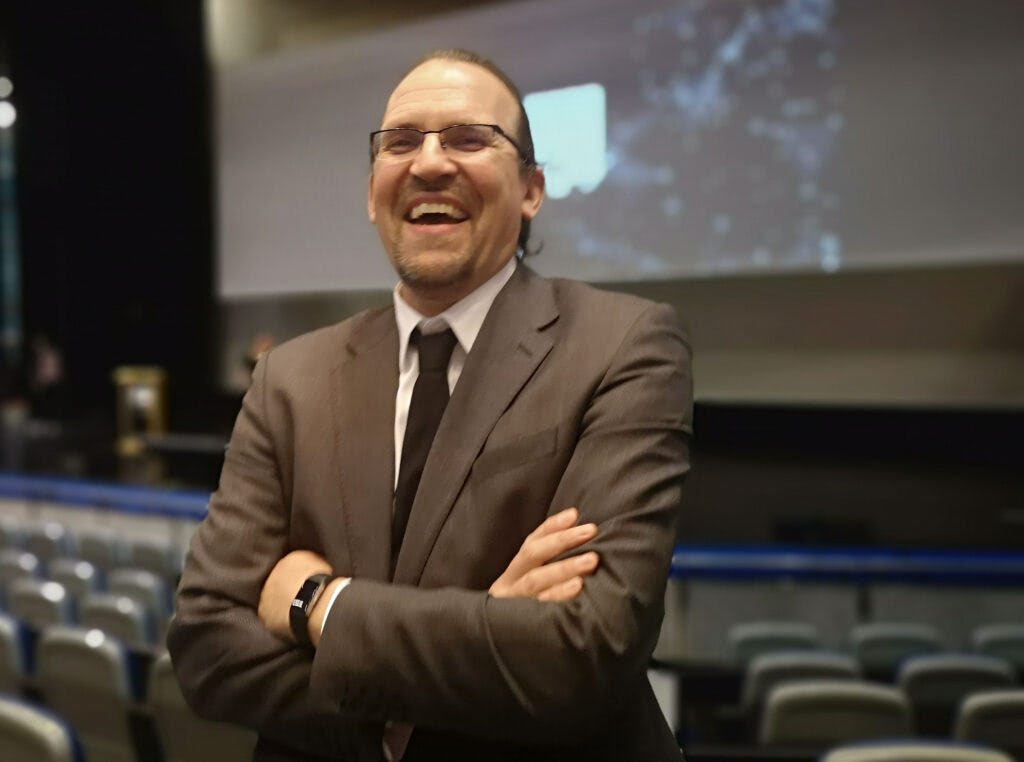This is the rise of the humans! Dispelling the myths about the robot uprising

The world of work is about to enter one of the most turbulent transitions that we have ever experienced. Not since the first industrial revolution have we stood in front of a change that offers to displace and disrupt such a large proportion of the global workforce.
Unlike the mechanical automation of the last industrial revolution, new technologies like machine learning, artificial intelligence and robotics offer us new ways to automate not just the mechanical aspects of what we do, but will increasingly offer us opportunities to automate the cognitive things we do.
Over time, entire vocations will disappear and many established and sometimes ancient professions (like accountancy and the legal industries) will be fundamentally altered by a new wave of automation that will continue to challenge human ability.
However, we need to remember that this kind of evolution is nothing all that new (when was the last time you met a typesetter, cooper or wheelwright?) and unlike the images and stories we see on our TV screens and read in the media, this need not be an adversarial battle of humans vs machines, where the robots take our jobs and AI conquers the planet.
Humans plus machines
Instead, smart employers are realising that their best future comes from creating an environment where the humans and machines complement rather than compete with each other.
This concept of “humans plus machines” is really important for us not just to understand, but to seek out. The problem is of course that it’s completely counter intuitive to all that we’ve been taught about our relationship with the machines.
We owe much of our current perception of robots to two Czech brothers who witnessed the growing inhumanity being administered to workers in the industrialised nations of eastern Europe and wrote a series of works and plays that presented a vision of a world where artificial factory workers could be manufactured and deployed to do the “dirty” work of human counterparts in order to set them free.
Inevitably however, the over production of such machines ultimately leads to the demise of the human race. This by the way, is a dystopian vision of the future which continues to pervade and colour our thoughts and aspirations as we look to the future.
It seems like every day we see headlines about “robots stealing our jobs” or how “artificial intelligence will destroy the human race” and this vision of dystopia seems to be shared with countless movie and tv series producers who delight in offering up a “black mirror” reflection of all that could go wrong.
In some ways, the potential outcome for the relationship between humans and machines could not be further from these increasingly hackneyed stories of dystopian enslavement that fill our screens.
Instead, this should be a bright world of possibility, a world of potential, a world where empathy, creativity and accountability have as much to offer as the ability to fulfil repetitive, dangerous or arduous tasks.
Skills that complement machines
The brightest of all our futures belongs to a world where humans and machines don’t compete with each other but instead, complement each other’s unique strengths and abilities and this is the world that we need to help individuals prepare for.
Employers and colleges alike need to start to focus as much on the skills that will complement the machines as they do on the vocations they are preparing future workers for. After all, the vocations will come and go, but these fundamentally human skills will always remain. Well, at least for the foreseeable future!
Now more than ever is the time for us to start to think about how we use the opportunity of apprenticeships and colleges to ensure that we help individuals acquire the skills that will help them both offer value to and feel valued by the modern society that they become a part of.
Educators, employers and technologists like me have a massive part to play in helping all of us make the transition into the 21st century’s world of work as smooth as possible and none of us can do it alone. Now more than ever we need to be forging close links between the worlds of work, education and technology to ensure that we are ready to make the best of all of the amazing outcomes our technology enabled future will have to offer.
This is the rise of the humans, and it starts with all of us and it starts right now…
Dave Coplin, Chief Envisioning Officer, The Envisioners
About Dave Coplin: An established technology expert, speaker and author, providing strategic advice and guidance around the impact of technology on a modern society in order to help organisations and individuals embrace the full potential that technology has to offer.











Responses